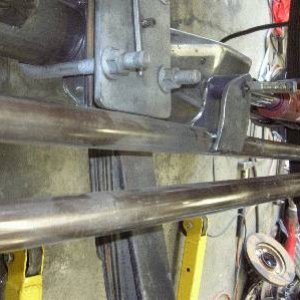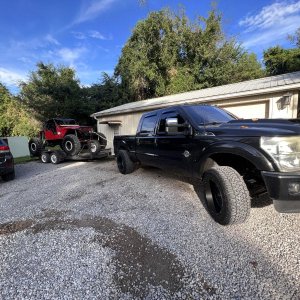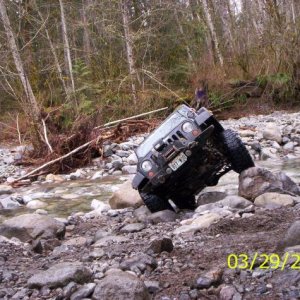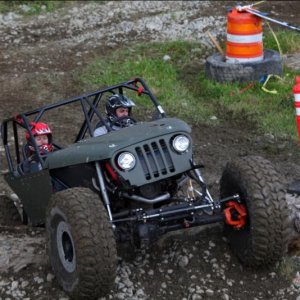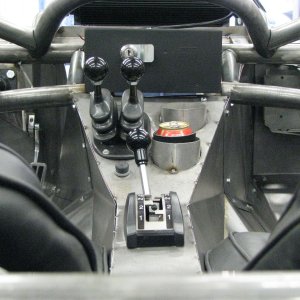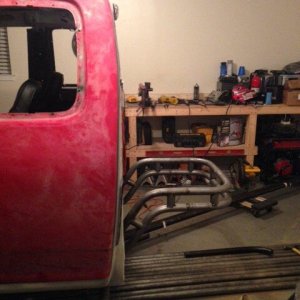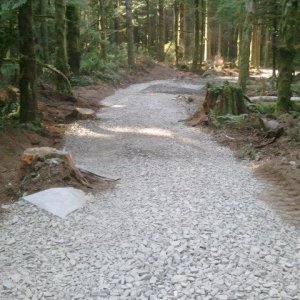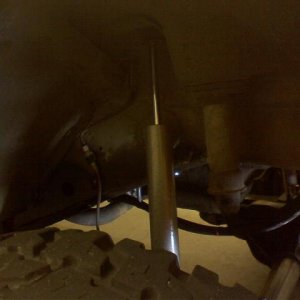Trailtoy1993
Well-Known Member
Alright, lets have at it.
Its been stated that Horsepower is the real answer to all engine performance and that torque is not a measure of anything. And that two engines of equal horsepower will tow the same regardless of torque as long as the weight and gear ratios are the same.....
BULLSHIT
Torque is expressed in the US as lb-ft. THis is read as Foot-pounds of torque and is quite literally the amount of power required to lift one pound of weight one foot vertically. It is a standard measure of power.
Horsepower, is an equation developed at the advent of the tractor to express to farmers how much work the tractor could do as compared to their horses and is expressed as (torque*RPM/5252)=horsepower. Because of the 5252 factor used to divide torque and rpm then torque and horsepower are always the same at 5252RPM. Always check Dyno charts to see if this is so. If they aren't the Dyno charts are fakes.
Torque is the amount of twist
Rpm is the number of twists
Horsepower is the combo of both of them
Bigger torque is a stronger twist
Bigger Horsepower is a larger of number of twists but not necessarily bigger twists
If you have sufficient number of twists per minute you can raise HP even though torque is beginning to fall. (to a point but eventually torque falls off so bad that HP does as well)
Max torque occurrs at max volumetric efficiency (or where the engine's breathing is the most perfect)
The example that I put forward is that of my 3sgte toyota 4 cylinder. It is turbocharged and the design goal is 425 horsepower. But, that HP number is expected at about 6500 rpm. Now, if we back out the equation we get this 425*5252/6500=343 lb-ft torque. Awesome in my little celica to be sure... Not a tow truck motor, more of a race car motor. Example two is A 425 cat over-the-road semi engine. Again, 425 horsepower but at 2300 rpm and this backs out as 425*5252/2300=970 lb-ft torque and we are just backing out the torque at HP peak rpm the actual torque peak is at lower rpm then the HP peak and will be a larger number. So, which engine would you rather tow 80,000 pounds with?
Torque is power measure, HP is range of power. In my mind HP is nearly irrelevant I typically look at torque numbers and max rpm numbers in an engine rather than HP as you can easily figure the hp if you know the other two. So, which number is bullshit to you?
Its been stated that Horsepower is the real answer to all engine performance and that torque is not a measure of anything. And that two engines of equal horsepower will tow the same regardless of torque as long as the weight and gear ratios are the same.....
BULLSHIT
Torque is expressed in the US as lb-ft. THis is read as Foot-pounds of torque and is quite literally the amount of power required to lift one pound of weight one foot vertically. It is a standard measure of power.
Horsepower, is an equation developed at the advent of the tractor to express to farmers how much work the tractor could do as compared to their horses and is expressed as (torque*RPM/5252)=horsepower. Because of the 5252 factor used to divide torque and rpm then torque and horsepower are always the same at 5252RPM. Always check Dyno charts to see if this is so. If they aren't the Dyno charts are fakes.
Torque is the amount of twist
Rpm is the number of twists
Horsepower is the combo of both of them
Bigger torque is a stronger twist
Bigger Horsepower is a larger of number of twists but not necessarily bigger twists
If you have sufficient number of twists per minute you can raise HP even though torque is beginning to fall. (to a point but eventually torque falls off so bad that HP does as well)
Max torque occurrs at max volumetric efficiency (or where the engine's breathing is the most perfect)
The example that I put forward is that of my 3sgte toyota 4 cylinder. It is turbocharged and the design goal is 425 horsepower. But, that HP number is expected at about 6500 rpm. Now, if we back out the equation we get this 425*5252/6500=343 lb-ft torque. Awesome in my little celica to be sure... Not a tow truck motor, more of a race car motor. Example two is A 425 cat over-the-road semi engine. Again, 425 horsepower but at 2300 rpm and this backs out as 425*5252/2300=970 lb-ft torque and we are just backing out the torque at HP peak rpm the actual torque peak is at lower rpm then the HP peak and will be a larger number. So, which engine would you rather tow 80,000 pounds with?
Torque is power measure, HP is range of power. In my mind HP is nearly irrelevant I typically look at torque numbers and max rpm numbers in an engine rather than HP as you can easily figure the hp if you know the other two. So, which number is bullshit to you?

